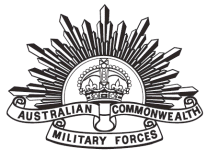

| Regimental number | 6548 |
| Place of birth | Lithgow, New South Wales |
| Religion | Roman Catholic |
| Occupation | Clothing manufacturer engineer |
| Address | Redfern, New South Wales |
| Marital status | Married |
| Age at embarkation | 26 |
| Height | 5' 6.75" |
| Weight | 166 lbs |
| Next of kin | Wife, Mrs C Dawson,110 Abercrombie Street, Redfern, New South Wales |
| Previous military service | Served for 3 years in the St George's English Rifles, Citizen Military Forces. |
| Enlistment date | |
| Place of enlistment | Sydney, New South Wales |
| Rank on enlistment | Private |
| Unit name | 17th Battalion, 19th Reinforcement |
| AWM Embarkation Roll number | 23/34/4 |
| Embarkation details | Unit embarked from Sydney, New South Wales, on board HMAT A18 Wiltshire on |
| Rank from Nominal Roll | Private |
| Unit from Nominal Roll | 17th Battalion |
| Fate | Discharged on account of desertion |
| Discharge date | |
| Family/military connections | Brothers: 2720 Pte Henry Constantine DAWSON, 45th Bn, killed in action, 7 April 1918; 19362 Sapper John Owen DAWSON, 1st Signal Squadron Engineers, returned to Australia, 30 August 1918; 3136 Pte Paul Richard DAWSON, 45th Bn, discharged on account of desertion, 1 April 1920; 17967 Sapper Samuel DAWSON, Anzac Mounted Division Train, returned to Australia, 26 August 1918. |
| Other details |
War service: England Embarked Sydney, 7 February 1917; disembarked Devonport, England, 11 April 1917, and marched in to 5th Training Bn, Rollestone. Found guilty, 30 April 1917, of being absent without leave from 2 pm, 26 April, to 2 pm, 27 April 1917: awarded forfeiture of 2 days' pay; total forfeiture: 4 days' pay. Found guilty, 25 May 1917, of being absent without leave from 14 May till apprehended, 22 May 1917: awarded forfeiture of 10 days' pay; total forfeiture: 18 days' pay. Absent without leave from 1 June 1917.!Declared an illegal absentee, 25 June 1917. Discharged on account of desertion from 30 June 1917 to 1 April 1920. Medals: eligibility for medals forfeited. Soldier wrote to Base Records, 20 January 1926: ''When I enlisted in N.S.W. my wife and children came to Melbourne to live with her mother and my papers were transferred to Melbourne. Meanwhile I had landed in England and owing to defective eyesight was detained at Salisbury Plains pending future arrangements. After leaving the Army I joined the British transport ship The Danube which was then engaged carrying troops from Marseilles to Salonkia. I was never warned for draught and regarded myself as an absentee. For 12 months subsequently to becoming A.W.L I was right in the danger zone. We were hit off Port Said just in the vicinity of where 4 other ships had become sunk. After landing at Port Said I saw the ship on which I had left Australia lying in port. On this ship I stowed away and after being a week at sea surrendered myself to the captain who then brought me back to Melbourne as a distressed sailor and handed me over to the custody of the military authorities. I was held in detention until such time as a ship would be available to send me back to England for I was looked upon as a British sailor. One morning early an opportunity of my getting away presented itself and in a moment of desparation and being activayed by a yearning to become re-united with those loved ones I had left behind I foolishly availed myself of the chance to escape and returned to my wife & children. From our family there were six who enlisted & were accepted for service abroad. Three of whom made the supreme sacrifice. All three being brothers of mine ... So now Sir I feel that if I have committed any wrong it has been nobly and faithfully vindicated by the heroic deeds of my lost brothers who so gallantly gave their lives in order to assist in maintaining our national prestige and uphold the glorious traditions of the British Empire. To say nothing of the heart aches of a dear indulgent and devoted mother who mourns in silence through the ensuing years of her life's chapter bear with fortitude & resignation the great loss she has sustained. I would therefore esteem it a very great favour if you give these details your fullest consideration and earnestly entreat you to do all that lies in your power to enable me to obtain my discharge & medals which to me would be always looked upon as my most chersihed possessions and in after years would be instrumental in recalling recollectios of (something attempted) if not (something done). So trusting you will pardon me for my negligence in not attending to these matters before.' The Standing Medals Board ruled that 'there is not sufficient grounds in your appeal to warrant [the] restoration [of your medals].' |
| Sources | NAA: B2455, DAWSON Hughie Francis Carlin |